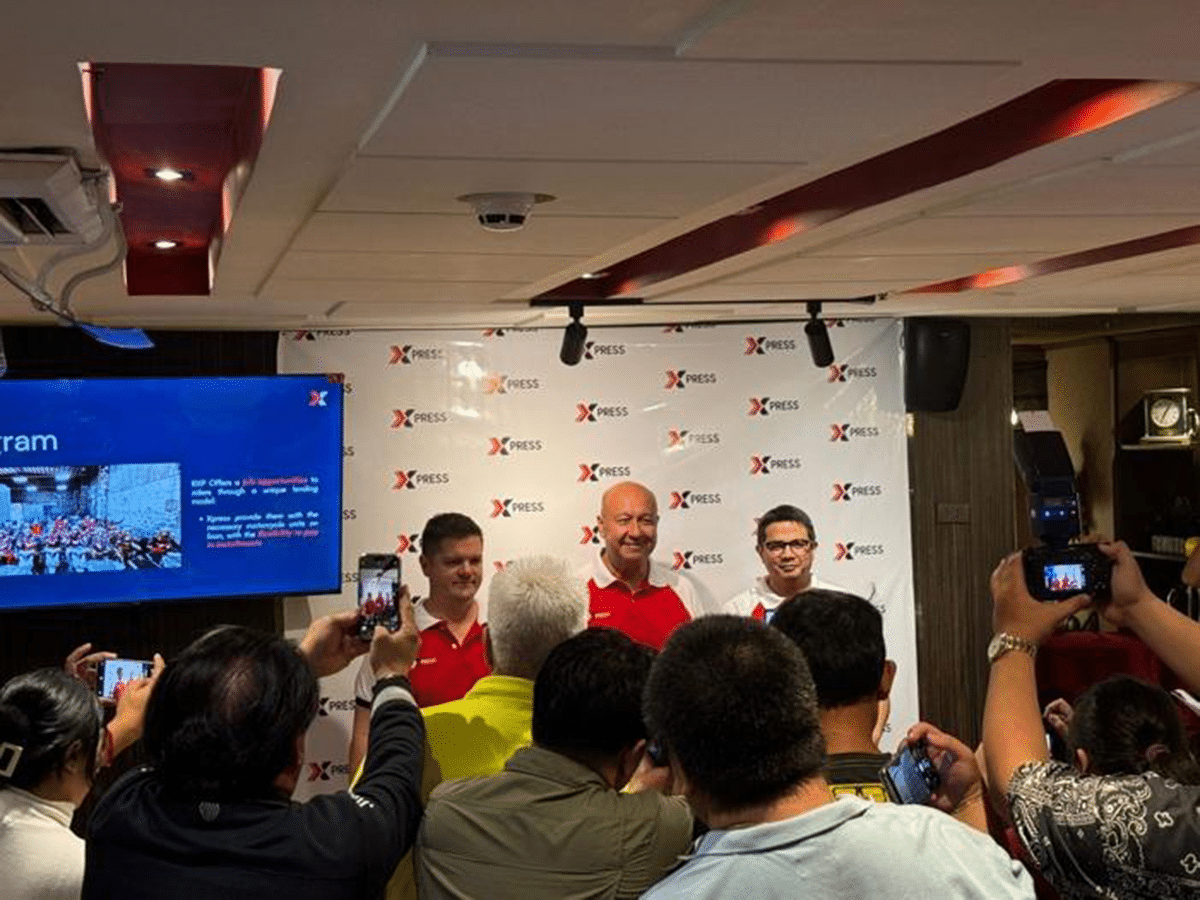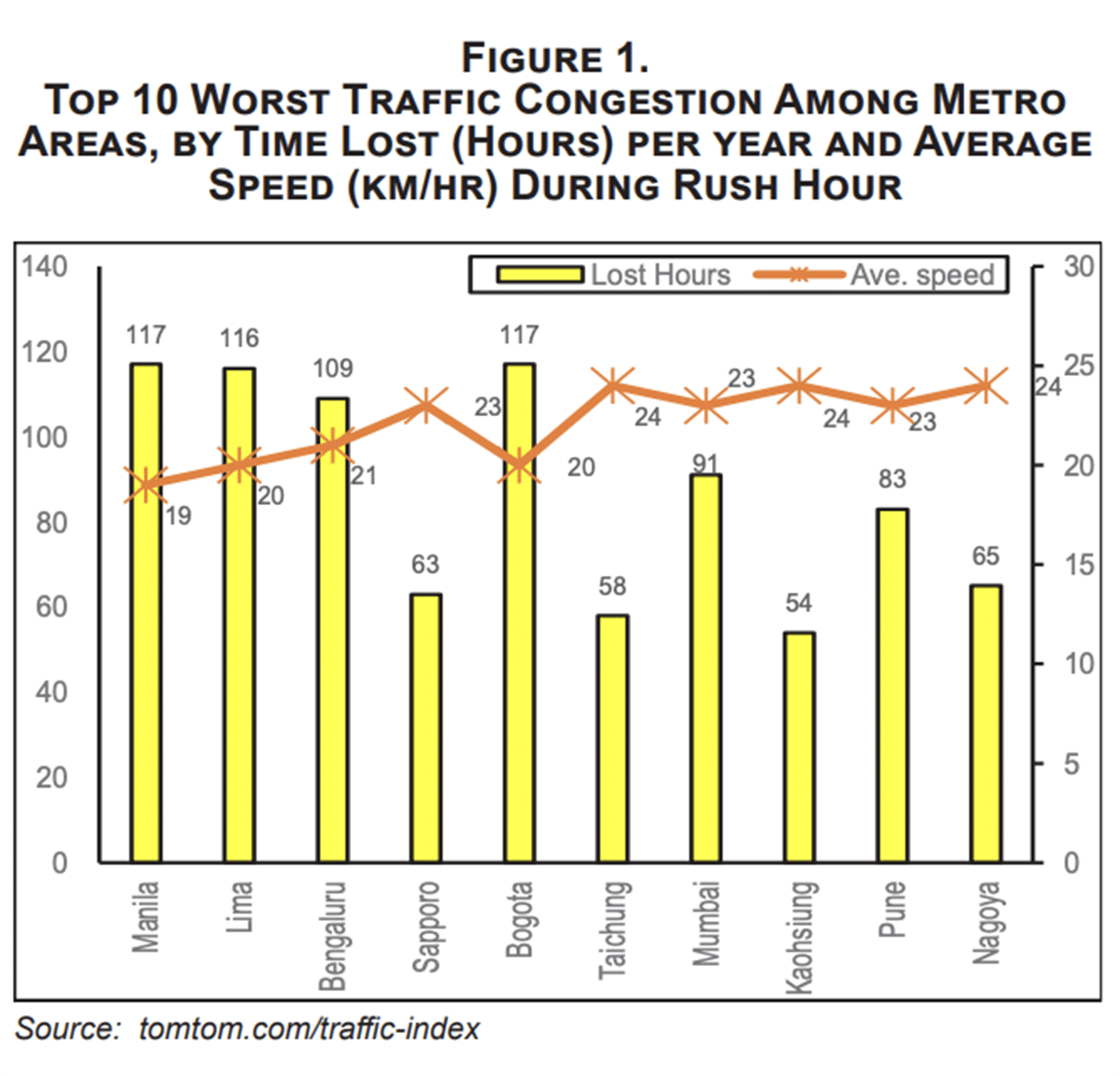It was noticed that public commuting within the Philippines is so dangerous that that it has been described as dehumanizing. The each day battle of the Filipino commuter consists primarily of hours of ready for a journey and getting caught in visitors snarls that mirror a critical transport provide scarcity, exacerbated by an inefficient and unintegrated public transport community.
READ: Commuters deserve higher
Whereas there was an enchancment because the days the place we might witness snaking lengthy strains at MRT and LRT stations, commuting in Metro Manila continues to be fairly difficult. Individuals ready for public transport and hailing rides, whether or not by way of bikes or vehicles, face lengthy waits. When lastly in a position to get a journey, commuters then need to face the visitors gridlock.
There was a research made and the results of which discovered that Metro Manila has the worst visitors congestion amongst metro areas on this planet. In accordance with the 2023 TomTom Visitors Index, out of 387 cities throughout 55 international locations, Metro Manila registered the longest common journey time to traverse a ten (10)- kilometer route (e.g., Cubao to Makati) at 25 minutes and 30 seconds. That is increased in comparison with the 24 minutes and 40 seconds common journey time in 2022. The opposite metro areas which topped in visitors congestion are Lima (Peru), Bengaluru (India), Sapporo (Japan), and Bogota (Colombia).
The apply of bikes for rent is historically often known as Habal-Habal. Traditionally, it’s stated that Habal-Habal began within the Mindanao space to service staff of small mining industries and merchants enabling them to maneuver to and from the locality the place there was no 4 or 3 wheel mode of transportation. Habal-Habal then unfold to the Visayas then to Luzon and Metro Manila.
In cities, travelling by way of bikes was extra inexpensive as proudly owning a bike was cheaper than shopping for a automotive. It was additionally seen as a fast method of navigating the clogged and slim streets of urbanized areas.
It’s stated that there are 10 million bikes within the Philippines. It is a big quantity for a inhabitants of about 110 million Filipinos. Since no administration has thus far been in a position to present an enduring resolution to the visitors congestion within the Philippines, it seems that bike possession is simply set to extend
In 2019, the federal government allowed a Pilot Program permitting bike taxis to serve Filipino commuters which was to be regulated by a Technical Working Group (TWG) led by the LTFRB. This system allowed Angkas and Joyride, and later MoveIt, to function MC Taxis. Final yr, the TWG accredited a number of different MC Taxi companies similar to Para Specific (Xpress), Taxi Philippines, Seize and Dingdong to function MC Taxis.
Among the many new gamers is Xpress which is a part of the Cebuana Lhuillier Group of Firms with its Xpress App for journey hailing and sharing.
READ: Inexperienced Mild for Xpress: LTFRB approves Moto Taxi and 4W Companies
The Xpress App has a deal with passenger safety which incorporates an choice for customers so as to add emergency contacts, making certain family members are knowledgeable in case of any emergencies. Moreover, each journey is safeguarded by Chubb Insurance coverage, offering peace of thoughts for each drivers and passengers.
It has additionally entered right into a strategic partnership with the Cebuana Lhuillier’s Kanegosyo Heart, accomplice drivers have the distinctive alternative to reinforce their expertise and data by means of free entry to precious instructional and monetary literacy assets.
Final July, Xpress held a media launch in Makati the place it introduced the Firm’s imaginative and prescient, its Xpress app and specialised options, and LGU partnerships.

Nathan Taylor (L), Xpress CEO, Jean Henri Lhuillier , Chairman (C), and Cliff Cabungcal, President (R)
It’s hoped that the entry of latest gamers after about half a decade of getting solely 3 gamers within the MC Taxi area, will spur innovation, higher service and aggressive charges, which all profit the using public.
Notably, there isn’t any legislation regulating the MC Taxi program, which is why the TWG and the MC Taxi Pilot Program was created again in 2019.
Nonetheless, change appears to be on the horizon as there have been persistent calls by Congress to finish the MC Taxi Pilot Program. There may be Home Invoice 10424, the Bikes-for-Rent Act, (HB 10424), which was lately handed on third and remaining studying by the Home of Representatives.
READ: Invoice in search of to control bike taxi ops will get Home’s nod
Some salient factors of HB 10424 are as follows.
- If handed into legislation, HB 10424 would be the legislation that can regulate the operation of motorbike taxis;
- The LTFRB to be the company tasked to problem a franchise or certificates of public comfort to MC Taxis;
- Operators of MC Taxis, which is the individual in whose title the motorcycle-for-hire is registered, could function below 2 digital platforms (multi-homing);
- MC Taxi operators could not function unbiased of digital platforms besides in areas that aren’t serviced by MC Taxi digital platforms;
- MC Taxi riders may have a most variety of hours of operation set by the implementing guidelines;
- MC Taxis shall have a pace restrict of 60kph;
- The Operator and digital platform supplier shall be collectively and solidarily responsible for dying, harm or harm to property attributable to the bike for rent. MC Taxis have to be coated by insurance coverage for the motive force, passengers, items, and third events;
- Digital platform suppliers shall conduct persevering with security and coaching seminars for his or her riders aside from areas the place no digital platform suppliers function the place in such circumstances the LTO shall conduct the protection and coaching of the riders;
- All digital service suppliers should set up a fast response group to offer fast medical take care of accidents and emergencies; and
- Drivers of MC Taxis should possess an expert driver’s license.
Because it seems like MC Taxis are right here to remain, let’s hope that the right legislation, guidelines and rules will lastly be in place.
(The writer, Atty. John Philip C. Siao, is a practising lawyer and founding Companion of Tiongco Siao Bello & Associates Regulation Places of work, an Arbitrator of the Development Business Arbitration Fee of the Philippines, and teaches legislation on the De La Salle College Tañada-Diokno College of Regulation. He could also be contacted at [email protected]. The views expressed on this article belong to the writer alone.)



